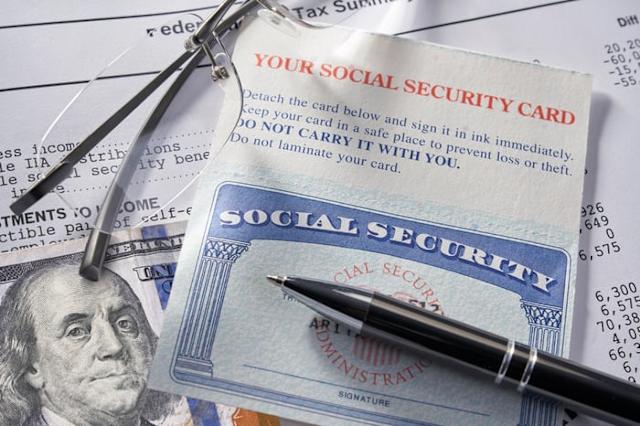In recent years, an increasing number of Americans are opting to claim Social Security benefits earlier than originally planned. A recent AARP survey highlights that a growing percentage of people, particularly those nearing retirement age, are choosing to start receiving their Social Security benefits before reaching Full Retirement Age (FRA). While Social Security is a critical financial lifeline for many, this shift raises important questions about the long-term financial implications for retirees.

This article dives into the reasons behind the growing trend of early claims, the economic factors at play, and the potential consequences of claiming Social Security benefits early. Whether you’re a retiree, a future beneficiary, or just navigating your own retirement plans, this guide will provide you with the insights you need to make informed decisions about your Social Security benefits.
More Americans Claiming Social Security
| Key Topic | What It Means | Data & Stats |
|---|---|---|
| Rising Early Claims | Many more Americans are choosing to claim Social Security earlier than planned. | A growing percentage of individuals aged 62-66 are applying for benefits before their Full Retirement Age (FRA). |
| Financial Concerns | The main reason behind early claims is growing concerns about the program’s financial stability and solvency. | 49% of respondents aged 50+ report concerns about Social Security “running out of money.” |
| Impact on Benefits | Claiming early reduces monthly benefits, sometimes permanently. | Claiming at 62 instead of FRA can reduce monthly benefits by up to 30%. |
| Practical Advice for Claiming Early | Retirees must weigh the benefits of early claiming against the permanent reduction in monthly payouts. | Consider your health, financial needs, and life expectancy before making an early claim decision. |
The rise in early Social Security claims is driven by a mix of economic pressures, health concerns, and misunderstandings about the future of the program. While early claiming provides immediate relief, it also comes with the significant trade-off of permanently reduced benefits. If you’re thinking about claiming early, it’s crucial to carefully evaluate your financial needs, health, and life expectancy. Armed with the right information and some expert advice, you can make a decision that ensures both your short-term security and long-term financial well-being.

Why Are More People Claiming Social Security Early?
1. Concerns About Social Security’s Future
One of the main drivers behind the increase in early claims is the growing concern that Social Security may not be as reliable in the future as it has been in the past. The Social Security Trust Fund is projected to be exhausted by 2034, at which point the program will only be able to pay out about 79% of promised benefits through payroll tax revenue. With this looming deadline, many Americans are wondering if they should take their benefits sooner rather than risk receiving less in the future.
In fact, according to a recent AARP survey, 49% of individuals aged 50 and older who claimed Social Security early did so because they believed the program would run out of money. This fear, fueled by news reports about the program’s funding issues, has led many to believe it’s better to take what they can now before it’s too late.
2. Misinformation and Misunderstanding
Many Americans are opting for early claiming based on misunderstandings about the program’s future. According to AARP, two-thirds of Americans don’t fully understand the potential impacts of the program’s financial situation. Over a third believe benefits will stop entirely once the trust fund is exhausted, which isn’t true. Even after 2034, Social Security will still be able to pay out approximately 79% of scheduled benefits.
This lack of understanding fuels the fear of claiming too late, which pushes many to claim early, thinking they may lose their benefits altogether if they wait.
3. Financial Pressure and Immediate Needs
Inflation, rising healthcare costs, and a lack of substantial savings have put significant financial pressure on many older Americans. With the cost of living rising, some individuals may not feel they can afford to wait until their Full Retirement Age (FRA) to claim Social Security.
The pandemic and resulting economic disruptions have further exacerbated these financial pressures. Some retirees are worried that waiting could mean not having enough to live on, and so they opt to claim early to meet immediate needs.
The Financial Impact of Claiming Social Security Early
How Much Will You Lose by Claiming Early?
When you claim Social Security benefits before your Full Retirement Age (FRA), your monthly payments will be permanently reduced. The earlier you start receiving benefits, the larger the reduction.
For example:
- If you claim at 62, the earliest age for claiming, your monthly benefits will be reduced by about 30% compared to the full benefits you would receive at FRA.
- If you claim at 63, the reduction is around 25%.
- 64 reduces your monthly benefits by about 20%.
- And if you wait until your FRA, your benefits will remain at 100% of the amount you’re entitled to based on your earnings.
What Are the Benefits of Waiting?
On the other hand, if you can afford to delay claiming benefits, it could pay off in the long run. Delaying Social Security can actually increase your monthly payments by as much as 8% per year until you reach age 70. This could add thousands of dollars over your lifetime, especially if you expect to live into your 80s or beyond.
By delaying benefits, you’re essentially making your monthly benefit check larger, which can have a substantial impact on your financial security in retirement.
What Are the Key Reasons People Are Claiming Early?
Financial Pressure and Immediate Needs
For many people, the decision to claim early is not based on theoretical future fears, but rather on very real financial pressures. It’s no secret that many Americans are living paycheck to paycheck. According to a 2023 survey by the Federal Reserve, nearly 40% of adults would struggle to cover a $400 emergency expense without borrowing money or selling something.
For these individuals, Social Security becomes a crucial lifeline. The idea of waiting several more years without additional income becomes an untenable option. This is especially true for individuals who do not have substantial savings or retirement accounts, making early access to Social Security a necessity.
Concerns About Health and Life Expectancy
Another factor driving early claiming is the belief that health issues or shorter life expectancy could limit the number of years someone would benefit from delaying Social Security. People with significant health concerns may be more inclined to claim early, reasoning that it’s better to take the benefits while they’re available. Additionally, people in physically demanding jobs may feel their ability to work is limited, so claiming early makes sense.
Misinformation About Social Security
A big factor fueling early claims is misinformation. Many people mistakenly believe that Social Security benefits will cease entirely when the Trust Fund is exhausted or that they need to start taking their benefits before the program runs out of money. As mentioned earlier, Social Security will still be able to pay out around 79% of benefits even after the Trust Fund runs out—something many people don’t realize. Misinformation, combined with fear about the future, often leads individuals to claim earlier than necessary.
Related Links
New Bill Could Slash Your Social Security Checks by 2033, Watchdog Warns
Social Security Cuts Hit Some New Yorkers — Are You on the List?
Major Social Security Shakeup Starts in August — What Retirees Must Know Now
Practical Tips for Those Considering Early Social Security
If you’re nearing retirement and considering claiming Social Security early, here are some practical tips to keep in mind:
1. Weigh the Financial Trade-Offs
Before deciding, it’s important to weigh the long-term financial trade-offs. While it may be tempting to claim early, remember that doing so will result in reduced monthly benefits for the rest of your life. Consider working with a financial advisor to calculate how much you’ll lose in benefits over time and if it’s worth it to claim early.
2. Consider Your Health and Life Expectancy
If you are in poor health or have a family history of shorter life expectancy, it may make sense to claim earlier. However, if you are in good health and expect to live into your 80s or beyond, waiting could provide a better financial outcome in the long run.
3. Don’t Make Decisions Based on Fear
It’s easy to make decisions based on fear—whether it’s fear of Social Security running out of money or fear of not having enough to live on. However, fear-driven decisions are often less informed and can lead to financial regret down the road. Stay informed and make sure you understand all of your options.
FAQs
Q: Can I still work while receiving Social Security benefits early?
A: Yes, you can work while receiving Social Security benefits. However, if you claim benefits before your Full Retirement Age (FRA), your benefits may be temporarily reduced if you earn above a certain threshold.
Q: What happens if I claim Social Security early and then change my mind?
A: If you claim early and later change your mind, you can withdraw your application and repay any benefits you’ve received. However, this must be done within 12 months of applying.
Q: Will I still get Medicare if I claim Social Security early?
A: Yes, once you start receiving Social Security benefits, you will automatically be enrolled in Medicare at age 65.





